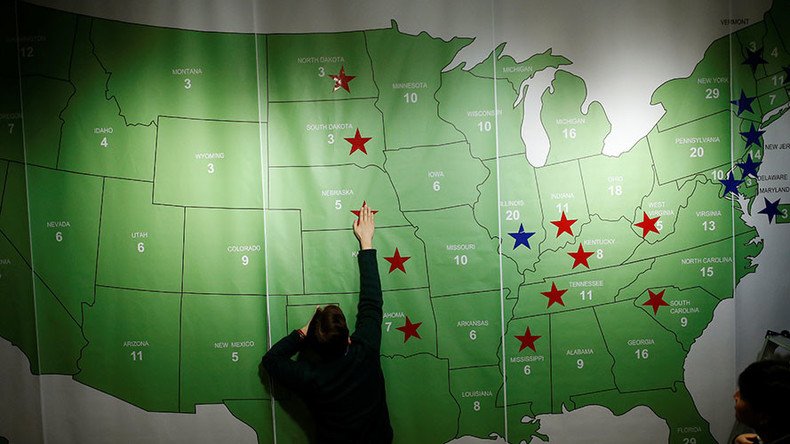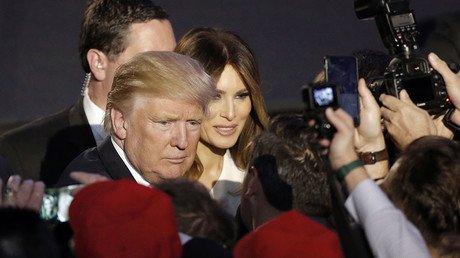Popularity contest: Dems introduce bill to abolish Electoral College

The Electoral College has been under fire since Donald Trump became president-elect, and now Democrats in Congress are moving ahead to dismantle the “outdated, undemocratic system.”
Last Tuesday’s surprise victory for Trump left many Democrats side-eyeing the Electoral College, as the 2016 election marked the second time in recent history that the popular vote failed to align with the actual electoral result.
Senator Barbara Boxer (D-California) filed new legislation on Tuesday that would replace the Electoral College with the popular vote.
"The Electoral College is an outdated, undemocratic system that does not reflect our modern society, and it needs to change immediately," she said in a statement.
In 2012, Trump agreed with her. Then on Tuesday, the president-elect tweeted in defense of the institution.
He has so far attained 290 electoral votes, surpassing the 270 required to win the presidency.
The electoral college is a disaster for a democracy.
— Donald J. Trump (@realDonaldTrump) November 7, 2012
The Electoral College is actually genius in that it brings all states, including the smaller ones, into play. Campaigning is much different!
— Donald J. Trump (@realDonaldTrump) November 15, 2016
The popular vote is still being tallied. Late Tuesday, the Associated Press reported Hillary Clinton had 61,438,917 votes, nearly a million more than Trump’s 60,646,655.
In the past week, over 4 million US citizens have signed a petition asking electors of the Electoral College to vote against the will of their state and in favor of Clinton to reflect the popular vote. The petition has met a lot of criticism, largely because the December vote of electors is mostly ceremonial, and the likelihood of such an unprecedented turnaround is extremely low.
Trump wins Electoral College thanks to older whites, loses popular votehttps://t.co/xag3XCCuQLpic.twitter.com/tLACODa0hM
— RT America (@RT_America) November 10, 2016
The history of the Electoral College goes back to the 1787 Constitutional Convention, where delegates “distrusted the passions of people” and lacked faith in a direct democracy’s ability to select a president. So, when the electors would gather to cast their votes, they were left to use their best judgment to make the choice. As the system evolved into a two-party one, the Electoral College ballot continued to grow with them and created a winner-takes-all policy for most states.
Trump is the fourth US president to win the Electoral College vote and lose the popular vote. John Quincy Adams, the sixth US president, won his election in 1824 through a vote of the House of Representatives when neither he nor Andrew Jackson won a majority of the Electoral College votes, although Jackson had won the popular vote.












